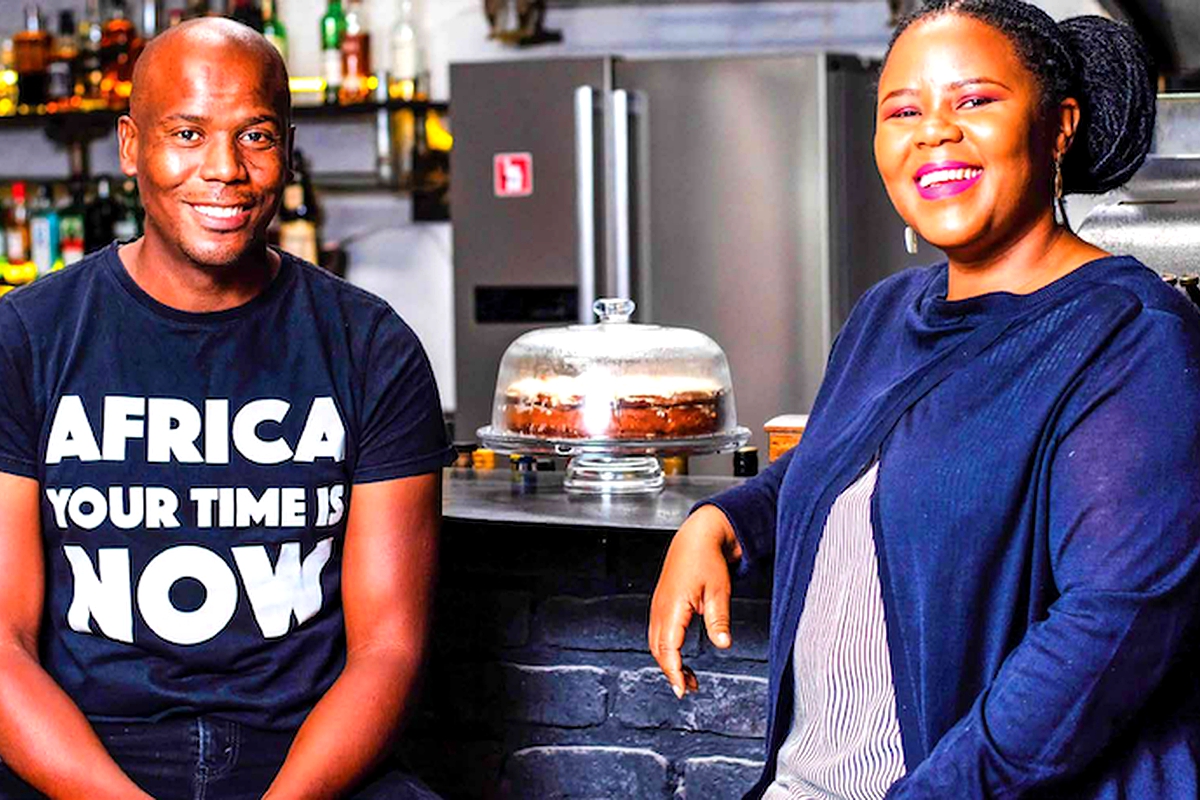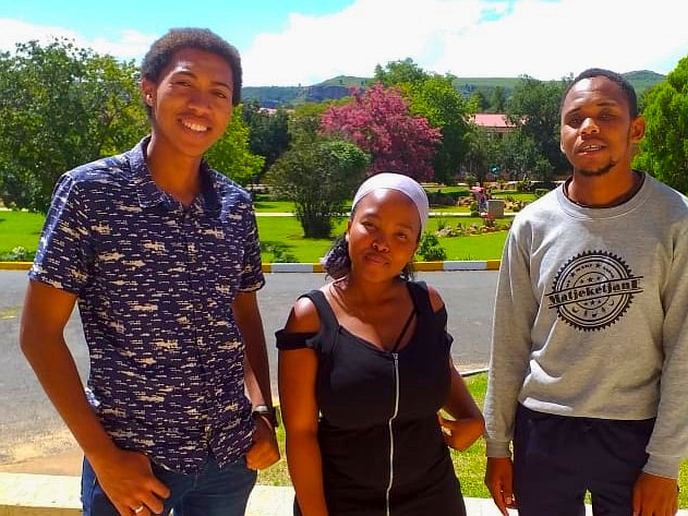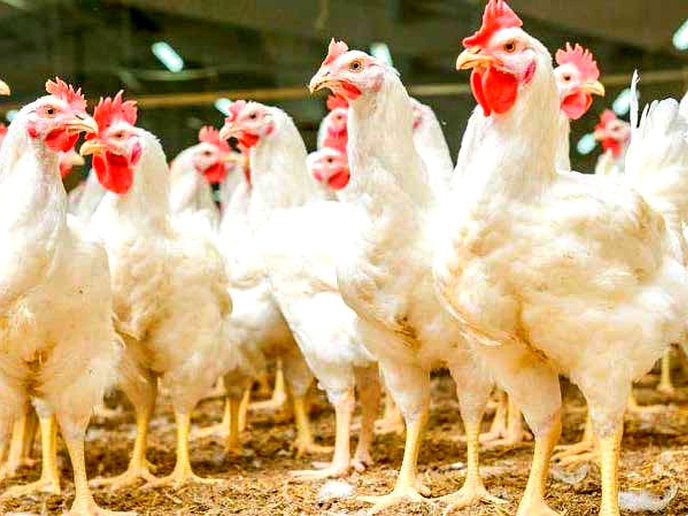Stephen Monyamane is a Mosotho Entrepreneur who has been in entrepreneurship for most of his adult life in Lesotho and abroad; and has grown from experiencing various successes and failures in business.
news
Nov. 6, 2020
6 min read
Indigenising Poultry Farming and Production

He is the co-founder of The Entrepreneurship Network (TEN) which hosts the monthly pitching program The Hookup Dinner (THUD) and the annual Entrepreneurship Expo. Mr. Monyamane (SM) is a 2016 Mandela Washington Fellow who attended the Business and Entrepreneurship Institute at Virginia Commonwealth University. He has also served as a Director on various boards such as the Council of Lerotholi Polytechnic and the Lesotho National Development Corporation (LNDC) representing the Lesotho Chamber of Commerce where he is a member. In this thought-provoking interview with Advocate Mothepa Ndumo (MN), Mr. Monyamane discusses issues on indigenizing poultry farming and production.
MN: You established Mon Foods a few years ago and are known as a champion of sustainable value chains; in what ways does Mon Foods connect to the drive to build sustainable value chains in our economy?
SM: In 2016 we developed The Entrepreneurship Network and began hosting the annual Entrepreneurship Expo. The Expo has been an opportunity for us as Basotho entrepreneurs to exhibit our products and services and to have meaningful conversations and sharing of ideas around entrepreneurship development.
One of the themes for a past Expo was, “Building Sustainable Value Chains” in which we invited stakeholders in the entrepreneurship ecosystem to talk about how we can localize key industries in Lesotho and ensure that we build these industries in such a way that they are profitable through different stages, that they benefit our society and that they are environmentally sustainable. Coincidentally, I came across the opportunity to get into the poultry business following this particular Entrepreneurship Expo, which shows the value of entrepreneurs participating in these discussions.
As soon as I learned about the opportunity that lies in the poultry industry, I decided that it was a risk worth taking. Just for context, in 2019 Lesotho imported USD 30 million worth of poultry (trade. nosis.com), which is more than 17 thousand tonnes of poultry annually from South Africa, with an estimated average annual growth rate of 9.13%. This means that there is ample opportunity for local enterprises to compete with South African companies for the local poultry market, and in doing so we can create jobs, develop skills and expertise and contribute to the fiscus of the country.
Our initial plan going into the business was to purchase a poultry abattoir, which we did, and then to source poultry from local farmers for slaughtering and take them to the market. This approach posed the challenge that local farmers were not consistent in bringing their poultry for slaughtering, we would fire up the boiler and wait for local farmers to honor their appointments to slaughter poultry and they just wouldn’t show up.
The second challenge was that the quality of poultry produced by each farmer would be different, which meant we wouldn’t be able to help the farmers sell the poultry to large retailers, such as Pick ‘n Pay and Shoprite, as the poultry would not meet quality standards. Thirdly, when produced in low quantities, the cost of production becomes quite steep for farmers and they are therefore unwilling to sell at the lower prices required by large retailers.
Therefore, it became clear to us very quickly that this model would not be sustainable. We, therefore, sought to venture into the production of poultry, as well, to have more control of the production process to ensure adherence to quality standards and to control the cost of production, which has given us the potential of securing a more reliable market. We currently source our chicks from South Africa, and therefore there is still a need to ensure that egg and chick production is done in Lesotho and that we can access chicks at a sustainable price. In doing so, we will have succeeded in developing the whole value chain and ensuring that we can compete fiercely with South African companies.
MN: What are the driving vision and mission behind Mon Foods and the poultry business and what challenges have you encountered in your journey thus far? How have you solved those challenges?
SM: The vision and mission are to ensure that Lesotho is food secure, that we create employment for Basotho, that we develop the skills that can be used in the furtherance of Lesotho’s growth through agriculture, that we reduce reliance on South African imports and that we achieve economic growth. The whole purpose of ensuring that key industries are in the hands of Basotho people is to see this objective achieved. Since embarking on this journey in 2018, the challenges have been immense.
The biggest challenge has been that the business is a capital and cash-flow intensive business, which has required a lot of engagement with Basotho people to seek investment. We have also realized that our banks are quite reluctant to take on the risk required to fund such a business and therefore have had to source our funding elsewhere. We are proud that so far, our investors are 100% Basotho, which shows our ability to rally together for a common purpose.
Another challenge is that the government still does not have a structured way of supporting businesses like ours in the agricultural sector, especially at this scale, therefore we are developing things as we go along. We hope to see more intentional support from the government to see that this venture succeeds.
Enjoy our daily newsletter from today
Access exclusive newsletters, along with previews of new media releases.
MN: On a personal level, what traits and characteristics, values, and beliefs, keep you going in terms of running such a huge operation?
SM: My faith in God is what grounds me. I believe that nothing is impossible to achieve when you have God on your side, and this gives me the confidence to pursue great exploits in everything that I do. I am also a visionary who can sell a vision in a compelling way to my partners and employees. The vision that I have is beyond just me, therefore a lot of people find resonance with it as it is a vision for this country, and we all love Lesotho. Lastly, my resilience and hard work serve me greatly. I see beyond impossibilities and push through boundaries when I truly believe in something.
MN: What are some of the key lessons you have learned in your business journey that you think are critical to teaching to Basotho youths who are aspiring businesspeople?
SM: I have learned so many valuable lessons along the way. The first of which is that you never stop learning. I have been in business for so long that one would assume I am an expert in the business. However, that is not the case. In fact, the more I grow, the more I realize how much I did not know about business and how much I have to keep on learning so that I can become a better version of myself, a better leader, and a better entrepreneur. The second lesson is that anyone who wants to build a great business in Lesotho does not have a lot to work with in terms of an enabling environment or existing structures.
The decision that every young person must make is whether they will wait for these structures to be developed or whether they will be pioneers and contribute to the building process. Making the latter choice is what makes you an entrepreneur. Lastly, no one can build anything of significance alone. I have learned in this journey that I have to surround myself with people who know things that I do not know, that I cannot be the smartest guy in the room and that if I tap into the knowledge and expertise of others then I can go really far.
Tailored for you





